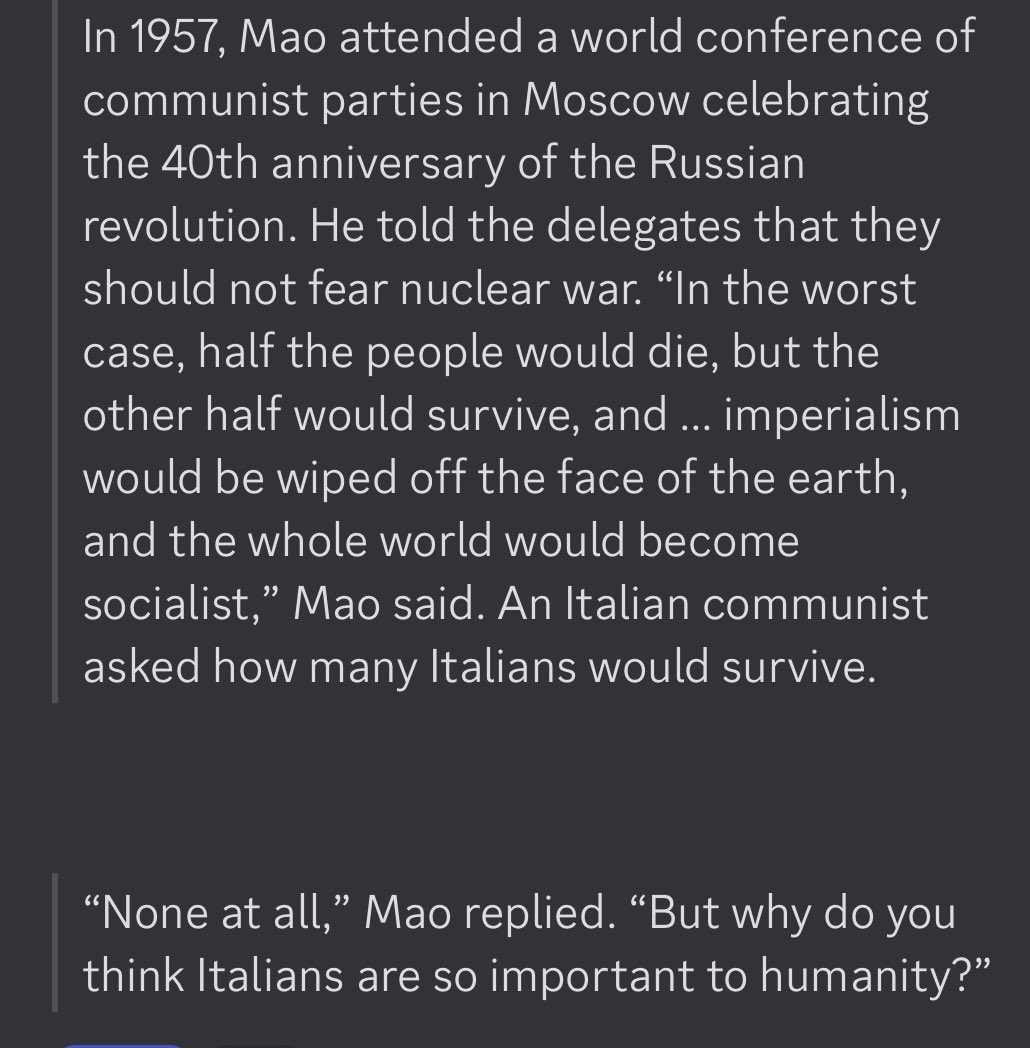this post was submitted on 06 Oct 2023
85 points (100.0% liked)
chapotraphouse
13535 readers
57 users here now
Banned? DM Wmill to appeal.
No anti-nautilism posts. See: Eco-fascism Primer
Gossip posts go in c/gossip. Don't post low-hanging fruit here after it gets removed from c/gossip
founded 3 years ago
MODERATORS
you are viewing a single comment's thread
view the rest of the comments
view the rest of the comments

Weapon yields are usually inversely proportional to accuracy. One of the primary roles of an ICBM is to take out the other country’s ICBMs, which are (largely) housed underground in armored concrete tubes. The closer you get to hitting the target, the less of an explosion is needed to reliably take out the weapon stored there. A number of weapons today are dial-a-yield, where the yield can be set from a relatively low to a medium explosion. The Soviets generally had more powerful warheads than the US, because their targeting accuracy was much worse. They could build great rockets and lenses but they were terrible at electronics.
However, you still have the problem with likely escalation and all of the Winner: None scenarios from the end of Wargames, even with low-yield weapons. They may in fact make nuclear war more likely if having a low yield weapon that can be used tactically makes it more likely to be used.
The problem is that, if there is an exchange between two nuclear superpowers, the ICBMs become “use them or lose them.” Sea launched missiles from the kinds of subs we’re talking about here have very short flight times - the subs are for the most part silent and can set up directly off the other country’s coast. Those could be used to devastate the land-based ICBMs, after which that country would no longer have the deterrent of a full-force counter-attack.
Up through the 60s, people were still talking about the possibility of fighting and winning an all-out nuclear war. It’s generally seen as impossible today. You might be able to have a limited exchange between India and Pakistan as long as the superpowers don’t get involved, but you’d still be talking about potentially hundreds of millions dead and the end of both countries. NK might get away with firing one, but they’d get hit so hard in return with such an overwhelming conventional weapons attack that the country would not survive.
An interesting question is what should a country do if deterrence fails? If all of the sudden the US has 3500 inbound nuclear missiles and knows that if it doesn’t launch right now no counterattack or response will be possible. It’s already a dead certainty that the US will cease to exist as an entity and would itself be looking at potentially hundreds of millions of deaths from primary, secondary (radiation, etc) and tertiary (infrastructure disruption) effects. You can launch several thousand weapons in response, but at that point it’s just vengeance. You can’t save your country anymore. You can only make sure you take the other side with you, causing tens to hundreds of millions more deaths, and not just in the country you’re counterattacking.
Anyway, that’s why it’s important to keep nuclear weapons technology secret, and why I’m pretty confident Russia will not use a nuclear weapon in its war on Ukraine, even if they’re making no progress or even losing conventionally.